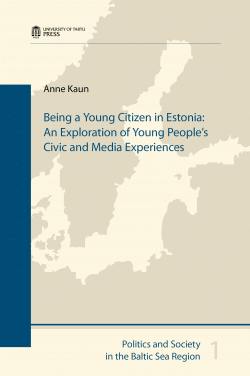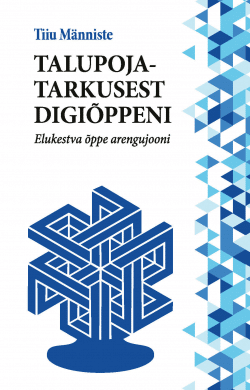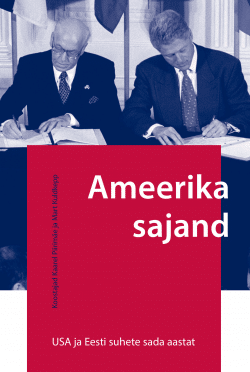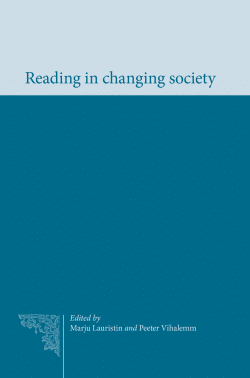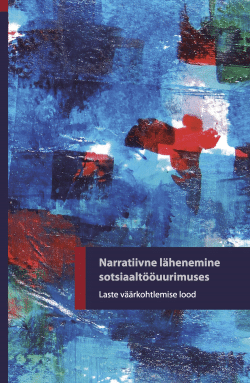Being a Young Citizen in Estonia: An Exploration of Young People`s Civic and Media Experiences
10,00 €
MüügitingimusedThe book gives an intriguing insight into how young people in Estonia, twenty years after the establishment of democracy, perceive their own role as citizens. It does so in a theoretical framework that stresses the embeddedness of the civic experiences in a media-dominated environment, thus closely linking civic and media experiences. Based on the analysis of both qualitative interview data and a relatively new method of using the internet as a complementary tool for engaging with open-ended diaries, the study explores the extent to which young citizens experience the media as being interwoven with their everyday lives and, in fact, constitutive of their social reality as citizens. With its particular focus on young Estonians, i.e. on a generation that has been brought up in a context of rapid political, economic and social change and that is well-known for its fascination with new communication technologies, the book is a valuable contribution to the growing international research on media and civic experiences.
REVIEWS
“[Kaun] has selectively and elegantly combined methodological tools and categories provided by narrative analysis and discourse theory, presenting the results of her analysis in a well-readable story… In sum, this book lays out an empirically well-illustrated and theoretically cemented mosaic of specific civic experiences of contemporary young people, presented in the form of an engaging story.”
(Veronika Kalmus, European Journal of Communication 29(2), 2014, 254-256)
“One of the book’s most important contributions is the introduction of the concept of critical media connectors and critical media disconnectors. Although the critical faculties of mass media audiences have long been recognised and widely studied, Kaun highlights a significant new distinction in how participants respond when adopting a critical stance. While some use it as a reason to disengage (disconnect) with mass media, and become increasingly reliant on personal networks for some information, others use it to account for their engagement (connection) in media dialogues, such as giving feedback on online articles, in order to produce counter-narratives. This conception of a distinction in the use of, or reaction to, media criticism should prove useful for subsequent research in the field.”
(Harriet Lloyd, Discourse & Society 25(5), 2014, 682-683)

